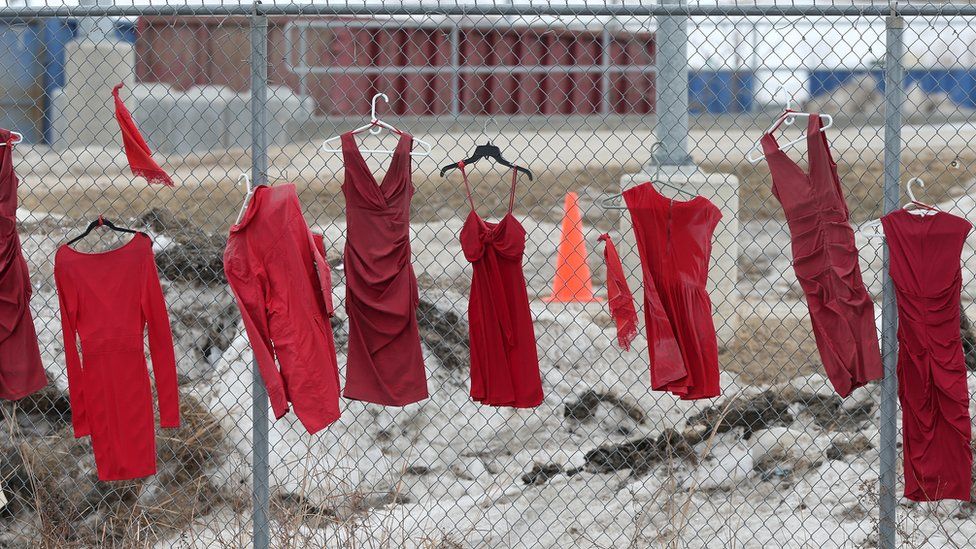ARTICLE AD BOX
 Image source, Reuters
Image source, Reuters
Red dresses hung up in honour of missing and killed indigenous women at the Brady landfill
A Canada court has allowed police to remove a blockade of a landfill site by protesters demanding action over the murders of two indigenous women.
Demonstrators began blocking the entrance to the rubbish dump in Winnipeg, Manitoba, about a week ago.
They are demanding another landfill be searched for two murder victims.
But Manitoba officials have said picking through the other dump would take years and cost millions, with no guarantee of finding any bodies.
The demonstrators' blockade has forced the city to shut down its Brady landfill.
Protesters want the Prairie Green landfill, north of Winnipeg, to be searched because police suspect that waste tip contains the remains of Morgan Beatrice Harris, 39, and Marcedes Myran, 26.
Both women, members of the Long Plain First Nation, are among four indigenous women believed to have been killed by Jeremy Skibicki, who was charged last December with four counts of first-degree murder.
The city of Winnipeg ordered protesters to dismantle the blockade of the Brady landfill by last Monday.
When the demonstrators refused to comply, the city applied for a court injunction, which was granted on Friday.
Justice Sheldon Lanchbery said protesters may remain at the site, but they cannot block the road.
Winnipeg police have been given authority to enforce the temporary injunction.
"What this boils down to is no-one in this province is allowed to block a highway," the judge said on Friday. "This is a public roadway."
But outside court, the protesters vowed they would not be budged.
"We want our sisters dug up from out the most inappropriate burial site you can think of," said Val Vint, reports CBC News.
Manitoba Premier Heather Stefanson said she stands by her decision not to search the Prairie Green landfill, citing the health and safety of workers who would have to sift through the debris.
Crown-Indigenous Relations Minister Marc Miller called the decision "heartless".
To scour the landfill would take three years and cost up to C$184m ($135m; £109m), according to a study paid for by the federal government.
Such a search would carry "considerable risks" because of exposure to toxic chemicals, and there is no guarantee the women would be found, the study concluded.
Mr Skibicki is also believed to have killed 24-year-old Rebecca Cantois and an unidentified victim who has been given the name Buffalo Woman.
Ms Cantois' remains were discovered at the Brady landfill in May 2022.
Indigenous women in Canada are 12 times more likely to be murdered or go missing than other women, according to a 2019 inquiry.

 1 year ago
71
1 year ago
71








 English (US) ·
English (US) ·